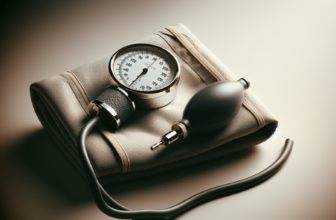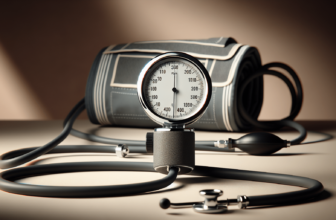
Think you know what causes high blood pressure? Think again! Here are 15 surprising reasons why your blood pressure might be higher than you expect.
Sleep Apnea

Sleep apnea can cause your blood pressure to spike because it interrupts your sleep cycle. When you stop breathing momentarily during sleep, your body reacts by increasing blood pressure. This can have long-term effects if left untreated.
Treating sleep apnea not only improves your quality of sleep but can also help lower your blood pressure. Options like using a CPAP machine, losing weight, or making lifestyle changes can significantly reduce the impact of sleep apnea on your overall health.
Ignoring sleep apnea can lead to more serious health issues, including heart problems and stroke. Identifying and treating it early can be crucial for maintaining a healthy blood pressure and overall well-being. Regular check-ups and sleep studies can help diagnose and manage this condition.
Dehydration

Not drinking enough water can cause your body to feel tired and sluggish. Staying hydrated helps keep your blood pressure in check and ensures that your organs function properly.
Dehydration can make your blood thicker, which forces your heart to work harder to pump it around your body. Drinking enough water helps keep your blood flowing smoothly and reduces strain on your heart.
When you’re dehydrated, your body retains more sodium, which can lead to higher blood pressure. By drinking plenty of water, you help your body maintain a healthy balance of sodium and other vital minerals.
Lack of Potassium

Potassium is vital for balancing sodium levels in the body. Without enough potassium, sodium can build up, leading to increased blood pressure. It’s important to include potassium-rich foods like bananas and spinach in your diet to maintain this balance.
A diet low in potassium can have other health impacts too. For instance, it can lead to muscle cramps and weakness. Potassium helps muscles function properly, so make sure you’re getting enough from sources like potatoes and yogurt.
Another important role of potassium is in heart health. Adequate potassium intake helps regulate heartbeats and prevents irregular heart rhythms. Including foods such as avocados and sweet potatoes can help you meet your daily potassium needs.
Thyroid Issues

Thyroid problems can mess with your blood pressure. Getting regular check-ups can help catch and handle these issues early. It’s important to keep an eye on your thyroid health to make sure your blood pressure stays in a good range.
An overactive or underactive thyroid can lead to high or low blood pressure. Symptoms may include unexpected weight changes, feeling tired, or mood swings. If you notice these signs, it’s a good idea to talk to your doctor.
Managing thyroid issues can be simple with the right care. Medications and lifestyle changes can help balance your thyroid levels. Regular check-ups with your healthcare provider are key to keeping everything in check and maintaining your overall health.
Caffeine Overload

Drinking too much caffeine can make your blood pressure go up. It’s important to enjoy coffee and energy drinks in moderation to avoid health problems.
Besides raising blood pressure, too much caffeine can also make you feel anxious or jittery. Keeping an eye on your intake can help you stay calm and focused.
Caffeine doesn’t just come from coffee; it’s in a lot of energy drinks, sodas, and even some teas. Checking labels can help you manage how much caffeine you’re getting.
Chronic Stress

Long-term stress can keep your blood pressure high, which is not good for your health. Taking time to relax, whether through meditation, deep breathing, or hobbies, can help bring it down and make you feel better overall.
Stress that goes on for too long can affect your heart and increase the risk of heart disease. Finding activities that you enjoy, such as exercising, reading, or spending time with loved ones, can help manage stress and improve your heart health.
Persistent stress can weaken your immune system, making you more prone to illnesses. It’s important to find ways to relax and unwind, like taking a walk, listening to music, or practicing mindfulness, to keep your immune system strong and stay healthy.
Medications

Some medicines can make your blood pressure go up. It’s always best to talk to your doctor about any side effects you might experience.
Certain over-the-counter drugs, like cold and flu medicines, can also affect your blood pressure. Make sure to read labels and consult your healthcare provider.
Even some prescription medications might impact your blood pressure. Always check with your doctor before starting or stopping any medication to ensure your well-being.
Over-the-Counter Drugs

Even common OTC drugs like ibuprofen can affect your blood pressure. It’s important to use them sparingly and talk to a healthcare provider about any concerns you might have. They can guide you on safe usage based on your health needs.
Many people don’t realize that frequent use of OTC pain relievers can lead to increased blood pressure. This can be particularly concerning for those already managing hypertension. Always check with a healthcare professional before making these medications a regular part of your routine.
Not just ibuprofen, but other OTC medications, such as cold and allergy meds, can also impact your blood pressure. It’s a good idea to read labels carefully and consult with your healthcare provider to avoid any potential issues.
Alcohol Consumption

Drinking a lot of alcohol can raise your blood pressure. It’s important to keep your drinking in check to stay healthy. Enjoying a drink now and then is fine, but don’t go overboard.
Moderation is key when it comes to alcohol. Having too much can not only affect your liver but also spike your blood pressure. Keep an eye on how much you drink to maintain your overall health.
Being mindful of your alcohol intake can help you avoid health issues like high blood pressure. It’s okay to have a drink socially, but make sure it doesn’t become a regular habit.
Processed Foods

Processed foods usually have a lot of salt, which can make your blood pressure go up. Try eating fresh fruits and vegetables instead. They’re healthier and can help keep your blood pressure in check.
Many processed foods have added sugars and unhealthy fats, which can lead to weight gain and other health issues. Choosing whole foods like nuts, seeds, and lean meats can provide better nutrition and help you maintain a healthy weight.
Eating too many processed foods can also affect your heart health. Fresh, whole foods like fish, beans, and whole grains are better choices. They support heart health and provide essential nutrients that your body needs.
Lack of Exercise

Not moving around much can make your blood pressure go up. Doing regular workouts, like walking or cycling, can help keep it down and make you feel better overall.
Sitting for long periods can be bad for your heart. Adding short, active breaks into your day can make a big difference in keeping your heart healthy and your blood pressure normal.
Exercise doesn’t need to be intense to be helpful. Even light activities, such as gardening or taking the stairs instead of the elevator, can lower your blood pressure and boost your mood.
Hormonal Imbalances

Hormonal changes, especially during menopause, can lead to fluctuations in blood pressure. It’s important to monitor your blood pressure regularly and talk to your doctor about any changes you notice.
Managing stress and maintaining a healthy lifestyle can help control blood pressure during hormonal changes. Regular exercise, a balanced diet, and adequate sleep are essential components of managing your overall health.
Certain medications and treatments can help manage blood pressure affected by hormonal changes. Consult with your healthcare provider to find the best approach for your individual needs and to ensure your treatment plan is effective.
High Sodium Diet

Eating too much salt can make your blood pressure go up. Try eating fewer salty snacks and less processed food to help keep your blood pressure in check.
Processed foods often have a lot of hidden salt. Reading food labels can help you understand how much salt you’re eating and make better choices.
Your taste buds can adjust to less salt over time. Start by slowly reducing the amount of salt you add to your meals, and soon you’ll enjoy the natural flavors of food more.
Obesity

Carrying extra weight puts added stress on your heart, making it work harder to pump blood. This can result in higher blood pressure, which is a risk factor for heart disease. Managing your weight through a balanced diet and regular exercise is essential.
Obesity can impact not just your heart, but other parts of your body as well. Extra weight can lead to conditions like diabetes, joint pain, and sleep apnea. By maintaining a healthy lifestyle, you can reduce these risks significantly.
Losing weight doesn’t just improve physical health but also boosts mental well-being. Shedding those extra pounds can lead to increased energy levels, better mood, and improved self-esteem. Small changes in daily habits can make a big difference over time.
Smoking

Smoking makes your blood vessels narrower, which can increase your blood pressure. By stopping smoking, you can lower your chances of heart disease and other health problems.
When you quit smoking, your body starts to heal almost immediately. Within a few days, your blood circulation improves, and your sense of taste and smell begin to return.
Quitting smoking not only benefits your health but also the health of those around you. Secondhand smoke can harm family and friends, so quitting helps create a healthier environment for everyone.
Conclusion
To wrap things up, high blood pressure can sneak up on you due to many unexpected factors. From everyday stress to seemingly harmless habits, it’s important to stay informed and take steps to keep your blood pressure in check. Remember, a healthy lifestyle goes a long way in managing your blood pressure. Stay proactive and keep an eye on those hidden causes!







